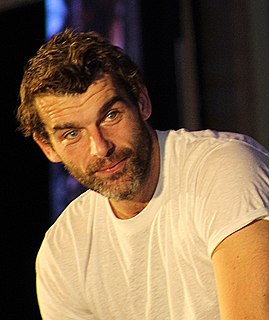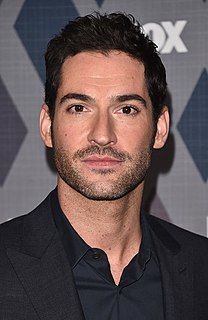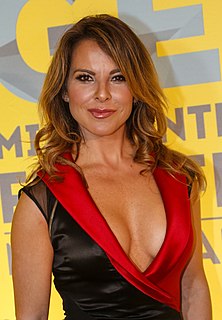A Quote by Laura Dern
When you're first reading the script and thinking about playing the part, it's slightly daunting. It's easy to question, 'Is an audience going to like me? And is that my job?'
Related Quotes
You know, my problem with most screenwriting is it is a blueprint. It's like they're afraid to write the damn thing. And I'm a writer. That's what I do. I want it to be written. I want it to work on the page first and foremost. So when I'm writing the script, I'm not thinking about the viewer watching the movie. I'm thinking about the reader reading the script.
I've been asked this question about playing the baddie so many times. When I read the script, I said, 'Of course this guy has done terrible things, but he's a human being first,' and that's what I'm attracted to in a part like this. It doesn't make any sense if all of a sudden the guy is horrendously bad and that's it. You can't relate to him or understand him.
I think everyone is always asking themselves, How is my work meaningful, how is my life meaningful? As I get older, I feel like who I am as a person and a citizen is more important than who I am in my work. But I do think it reframed slightly for me, how much I have to care about a project in order to want to do it. Sometimes, obviously, you have a take a job for money. But I think I'm quicker now when I get a script that's, say, borderline misogynist, I'm not going to go in for it. I'm thinking more about what I'm putting into the world.
You're in a movie, so you have to think about how something plays. It's not like you're thinking about how an audience is going to react. You're trying to present the story. You're trying to illuminate the lives of these people in the story. So I'm thinking about how my behavior as this character best illuminates what's going on with them in this moment in time. I always say it's sort of the director's job. People think that the directors direct actors. No. Really, what the director's doing is directing the audience's eye through the film.
I like reading for things. I've shown up for jobs before where I haven't read for them, and there's something kind of intimidating about that - where the first words they'll hear from me are when they call "action." There's something about actually going in and earning a part and going, like, "Okay, they really liked what I did, and so I'm on the right track."
I feel like people expect me to give them easy answers, but there aren't really easy answers. There are only harder questions. And unless we get to the harder questions part, about what this conversation is really about...of course I want an immigration bill to pass. I want people to have a driver's license and work permits and green cards and passports. But this conversation transcends this bill. We're not going to have a perfect bill. This is politics. I feel like my job is instead of giving people easy answers, my job is to actually to ask people to probe deeper.




































